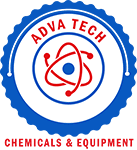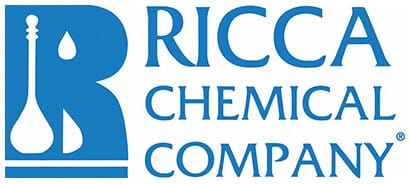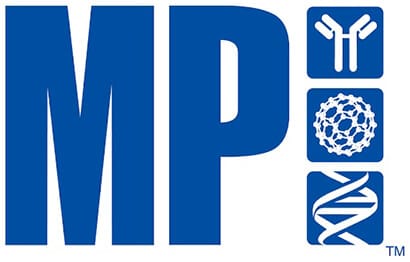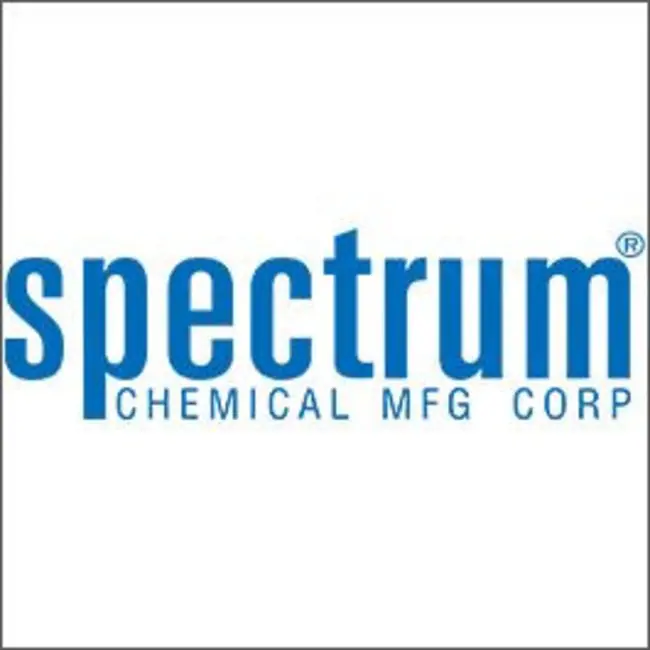Shop
Showing 88051–88100 of 174426 results
-

IL-17D, Human
$301.88 Add to cart View Product DetailsIL-17D is a secreted cytokine with homology to the IL-17 family of proteins. It is preferentially expressed in skeletal muscle, brain, adipose tissue, heart, lung, and pancreas. It has been reported that IL-17D has the ability to stimulate the production of other cytokines from target tissues such as endothelial cells, treatment of endothelial cells with purified rIL-17D protein stimulated the production of IL-6, IL-8, and GM-CSF. In addition, rIL-17D also demonstrated an inhibitory effect on hemopoiesis of myeloid progenitor cells in colony formation assays.
-
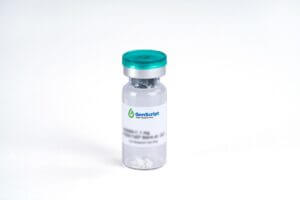
IL-17F, Human
$2,190.75 Add to cart View Product DetailsHuman IL-17F is synthesized as a 153 aa precursor with a 20 aa signal sequence and a 133 aa mature region. Like IL-17A, IL-17F contains one potential site for N-linked glycosylation. IL-17A and IL-17F share 50% aa sequence identity. IL17-F homodimer is produced by an activated subset of CD4+ T cells, termed Th17. IL17-F has been shown to stimulate proliferation and activation of T-cells and PBMCs. IL-17F also regulates cartilage matrix turnover and inhibits angiogenesis.
-
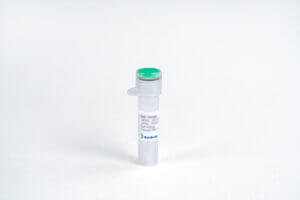
IL-17F, Human
$163.88 Add to cart View Product DetailsHuman IL-17F is synthesized as a 153 aa precursor with a 20 aa signal sequence and a 133 aa mature region. Like IL-17A, IL-17F contains one potential site for N-linked glycosylation. IL-17A and IL-17F share 50% aa sequence identity. IL17-F homodimer is produced by an activated subset of CD4+ T cells, termed Th17. IL17-F has been shown to stimulate proliferation and activation of T-cells and PBMCs. IL-17F also regulates cartilage matrix turnover and inhibits angiogenesis.
-

IL-17RB Rabbit mAb
$103.04 Add to cart View Product DetailsMonoclonal Antibodies
-

IL-17RB Rabbit mAb
$264.04 Add to cart View Product DetailsMonoclonal Antibodies
-

IL-18 BP, Human
$1,030.69 Add to cart View Product DetailsInterleukin-18 binding protein, also known as IL-18BP and tadekinig-alfa, is a secreted glycoprotein that contains an Ig-like C2-type domain. It is expressed in heart, lung, placenta and spleen. IL-18BP functions as an inhibitor of the proinflammatory cytokine IL-18. It binds to IL-18, prevents the binding of IL-18 to its receptor, and thus blocks IL-18-induced IFN-gamma production. The complete Ig domain has been shown to mediate the binding and neutralizing properties. IFN-gamma is able to upregulate the expression of IL-18BP, indicating that IL-18 activity is regulated by a feedback mechanism through IL-18BP.
-

IL-18 BP, Human
$43.13 Add to cart View Product DetailsInterleukin-18 binding protein, also known as IL-18BP and tadekinig-alfa, is a secreted glycoprotein that contains an Ig-like C2-type domain. It is expressed in heart, lung, placenta and spleen. IL-18BP functions as an inhibitor of the proinflammatory cytokine IL-18. It binds to IL-18, prevents the binding of IL-18 to its receptor, and thus blocks IL-18-induced IFN-gamma production. The complete Ig domain has been shown to mediate the binding and neutralizing properties. IFN-gamma is able to upregulate the expression of IL-18BP, indicating that IL-18 activity is regulated by a feedback mechanism through IL-18BP.
-

IL-18 BP, Human
$86.25 Add to cart View Product DetailsInterleukin-18 binding protein, also known as IL-18BP and tadekinig-alfa, is a secreted glycoprotein that contains an Ig-like C2-type domain. It is expressed in heart, lung, placenta and spleen. IL-18BP functions as an inhibitor of the proinflammatory cytokine IL-18. It binds to IL-18, prevents the binding of IL-18 to its receptor, and thus blocks IL-18-induced IFN-gamma production. The complete Ig domain has been shown to mediate the binding and neutralizing properties. IFN-gamma is able to upregulate the expression of IL-18BP, indicating that IL-18 activity is regulated by a feedback mechanism through IL-18BP.
-

IL-18, Rat
$3,070.50 Add to cart View Product DetailsInterleukin-18 (IL18, also known as interferon-gamma inducing factor or IGIF) is a cytokine that belongs to the IL-1 superfamily and is produced by macrophages and other cells. Its biological activity is pleiotropic and it has been shown to induce interferon-gamma production in KG-1 cells. The combination of this cytokine and IL12 has been shown to inhibit IL4 dependent IgE and IgG1 production, and enhance IgG2a production in B cells.
-

IL-18, Rat
$86.25 Add to cart View Product DetailsInterleukin-18 (IL18, also known as interferon-gamma inducing factor or IGIF) is a cytokine that belongs to the IL-1 superfamily and is produced by macrophages and other cells. Its biological activity is pleiotropic and it has been shown to induce interferon-gamma production in KG-1 cells. The combination of this cytokine and IL12 has been shown to inhibit IL4 dependent IgE and IgG1 production, and enhance IgG2a production in B cells.
-

IL-18, Rat
$306.19 Add to cart View Product DetailsInterleukin-18 (IL18, also known as interferon-gamma inducing factor or IGIF) is a cytokine that belongs to the IL-1 superfamily and is produced by macrophages and other cells. Its biological activity is pleiotropic and it has been shown to induce interferon-gamma production in KG-1 cells. The combination of this cytokine and IL12 has been shown to inhibit IL4 dependent IgE and IgG1 production, and enhance IgG2a production in B cells.
-

IL-19, Human
$3,639.75 Add to cart View Product DetailsInterleukin-19 (IL-19) is a cytokine belonging to the interleukin family. Structurally, IL-19 is grouped into the IL-10 sub-family, which also includes IL-20, IL-22, IL-24, and IL-26. In contrast to IL-10, which exists as a homodimer, IL-19 is stable and active as a monomer in vivo. IL-19 functions through the receptor complex composed of IL-20 Receptor α and IL-20 Receptor β, which is also utilized by IL-20 and IL-24. IL-19 is produced by active monocytes and stimulated synergistically by IL-17 and IL-13. The functions of IL-19 are to promote the development and function of Th2 cells and to enhance the production of Th2 cytokines. IL-19 is implicated in aging, vascular disease, Type I diabetes, and rheumatoid arthritis.
-

IL-19, Human
$167.33 Add to cart View Product DetailsInterleukin-19 (IL-19) is a cytokine belonging to the interleukin family. Structurally, IL-19 is grouped into the IL-10 sub-family, which also includes IL-20, IL-22, IL-24, and IL-26. In contrast to IL-10, which exists as a homodimer, IL-19 is stable and active as a monomer in vivo. IL-19 functions through the receptor complex composed of IL-20 Receptor α and IL-20 Receptor β, which is also utilized by IL-20 and IL-24. IL-19 is produced by active monocytes and stimulated synergistically by IL-17 and IL-13. The functions of IL-19 are to promote the development and function of Th2 cells and to enhance the production of Th2 cytokines. IL-19 is implicated in aging, vascular disease, Type I diabetes, and rheumatoid arthritis.
-

IL-19, Mouse
$2,018.25 Add to cart View Product DetailsInterleukin-19 (IL-19) is a cytokine belonging to the interleukin family. Structurally, IL-19 is grouped into the IL-10 sub-family, which also includes IL-20, IL-22, IL-24, and IL-26. In contrast to IL-10, which exists as a homodimer, IL-19 is stable and active as a monomer in vivo. IL-19 functions through the receptor complex composed of IL-20 Receptor α and IL-20 Receptor β, which is also utilized by IL-20 and IL-24. IL-19 is produced by active monocytes and stimulated synergistically by IL-17 and IL-13. The functions of IL-19 are to promote the development and function of Th2 cells and to enhance the production of Th2 cytokines. IL-19 is implicated in aging, vascular disease, Type I diabetes, and rheumatoid arthritis.
-

IL-19, Mouse
$86.25 Add to cart View Product DetailsInterleukin-19 (IL-19) is a cytokine belonging to the interleukin family. Structurally, IL-19 is grouped into the IL-10 sub-family, which also includes IL-20, IL-22, IL-24, and IL-26. In contrast to IL-10, which exists as a homodimer, IL-19 is stable and active as a monomer in vivo. IL-19 functions through the receptor complex composed of IL-20 Receptor α and IL-20 Receptor β, which is also utilized by IL-20 and IL-24. IL-19 is produced by active monocytes and stimulated synergistically by IL-17 and IL-13. The functions of IL-19 are to promote the development and function of Th2 cells and to enhance the production of Th2 cytokines. IL-19 is implicated in aging, vascular disease, Type I diabetes, and rheumatoid arthritis.
-

IL-19, Mouse
$340.69 Add to cart View Product DetailsInterleukin-19 (IL-19) is a cytokine belonging to the interleukin family. Structurally, IL-19 is grouped into the IL-10 sub-family, which also includes IL-20, IL-22, IL-24, and IL-26. In contrast to IL-10, which exists as a homodimer, IL-19 is stable and active as a monomer in vivo. IL-19 functions through the receptor complex composed of IL-20 Receptor α and IL-20 Receptor β, which is also utilized by IL-20 and IL-24. IL-19 is produced by active monocytes and stimulated synergistically by IL-17 and IL-13. The functions of IL-19 are to promote the development and function of Th2 cells and to enhance the production of Th2 cytokines. IL-19 is implicated in aging, vascular disease, Type I diabetes, and rheumatoid arthritis.
-

IL-1RA Rabbit mAb
$103.04 Add to cart View Product DetailsMonoclonal Antibodies
-

IL-1RA Rabbit mAb
$264.04 Add to cart View Product DetailsMonoclonal Antibodies
-
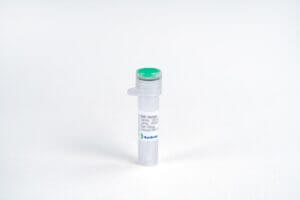
IL-1RA, Human
$1,073.81 Add to cart View Product DetailsInterleukin-1 receptor antagonist (IL-1ra) is a member of the IL-1 family. Endogenous IL-1ra is produced in numerous animal disease models as well as in human autoimmune and chronic inflammatory diseases. It binds to IL-1 receptors in competition with IL-1, but does not elicit intracellular response from this binding. Its role in counteracting the proinflammatory effects of IL-1 is being studied by numerous research groups. IL-4 and IL-13 have been shown to amplify the stimulatory effect of IL1-beta on the production of soluble and intracellular forms of IL1-ra. The regulated expression of IL1ra in various cell types has been shown to be influenced by cytokines. In synovial fibroblasts the synthesis of IL-1ra is markedly enhanced by IL-1, TNF-alpha, or PDGF.
-

IL-1RA, Human
$81.94 Add to cart View Product DetailsInterleukin-1 receptor antagonist (IL-1ra) is a member of the IL-1 family. Endogenous IL-1ra is produced in numerous animal disease models as well as in human autoimmune and chronic inflammatory diseases. It binds to IL-1 receptors in competition with IL-1, but does not elicit intracellular response from this binding. Its role in counteracting the proinflammatory effects of IL-1 is being studied by numerous research groups. IL-4 and IL-13 have been shown to amplify the stimulatory effect of IL1-beta on the production of soluble and intracellular forms of IL1-ra. The regulated expression of IL1ra in various cell types has been shown to be influenced by cytokines. In synovial fibroblasts the synthesis of IL-1ra is markedly enhanced by IL-1, TNF-alpha, or PDGF.
-

IL-1RA, Human
$254.44 Add to cart View Product DetailsInterleukin-1 receptor antagonist (IL-1ra) is a member of the IL-1 family. Endogenous IL-1ra is produced in numerous animal disease models as well as in human autoimmune and chronic inflammatory diseases. It binds to IL-1 receptors in competition with IL-1, but does not elicit intracellular response from this binding. Its role in counteracting the proinflammatory effects of IL-1 is being studied by numerous research groups. IL-4 and IL-13 have been shown to amplify the stimulatory effect of IL1-beta on the production of soluble and intracellular forms of IL1-ra. The regulated expression of IL1ra in various cell types has been shown to be influenced by cytokines. In synovial fibroblasts the synthesis of IL-1ra is markedly enhanced by IL-1, TNF-alpha, or PDGF.
-

IL-1RAcP Rabbit mAb
$103.04 Add to cart View Product DetailsMonoclonal Antibodies
-

IL-1RAcP Rabbit mAb
$264.04 Add to cart View Product DetailsMonoclonal Antibodies
-

IL-1RAcP Rabbit pAb
$239.89 Add to cart View Product DetailsPolyclonal Antibodies
-

IL-1RAcP Rabbit pAb
$86.94 Add to cart View Product DetailsPolyclonal Antibodies
-

IL-1α, Human
$3,458.63 Add to cart View Product DetailsIL-1 alpha is a non-secreted proinflammatory cytokine produced in a variety of cells including monocytes, tissue macrophages, keratinocytes and other epithelial cells. Both IL-1alpha and IL-1beta binds to the same receptor and has similar if not identical biological properties. These cytokines have a broad range of activities including, stimulation of thymocyte proliferation, by inducing IL-2 release, B-cell maturation and proliferation, mitogenic FGF-like activity and the ability to stimulate the release of prostaglandin and collagenase from synovial cells. However, whereas IL-1 beta is a secreted cytokine, IL-1 alpha is predominantly a cell-associated cytokine.
-

IL-1α, Human
$155.25 Add to cart View Product DetailsIL-1 alpha is a non-secreted proinflammatory cytokine produced in a variety of cells including monocytes, tissue macrophages, keratinocytes and other epithelial cells. Both IL-1alpha and IL-1beta binds to the same receptor and has similar if not identical biological properties. These cytokines have a broad range of activities including, stimulation of thymocyte proliferation, by inducing IL-2 release, B-cell maturation and proliferation, mitogenic FGF-like activity and the ability to stimulate the release of prostaglandin and collagenase from synovial cells. However, whereas IL-1 beta is a secreted cytokine, IL-1 alpha is predominantly a cell-associated cytokine.
-

IL-1α, Mouse
$3,458.63 Add to cart View Product DetailsInterleukin-1 alpha (IL-1α) is a non-secreted proinflammatory cytokine produced in a variety of cells including monocytes, tissue macrophages, keratinocytes and other epithelial cells. Both IL-1αand IL-1β binds to the same receptor and has similar if not identical biological properties. These cytokines have a broad range of activities including, stimulation of thymocyte proliferation, by inducing IL-2 release, B-cell maturation and proliferation, mitogenic FGF-like activity and the ability to stimulate the release of prostaglandin and collagenase from synovial cells. However, whereas IL-1β is a secreted cytokine, IL-1α is predominantly a cell-associated cytokine.
-

IL-1α, Mouse
$155.25 Add to cart View Product DetailsInterleukin-1 alpha (IL-1α) is a non-secreted proinflammatory cytokine produced in a variety of cells including monocytes, tissue macrophages, keratinocytes and other epithelial cells. Both IL-1αand IL-1β binds to the same receptor and has similar if not identical biological properties. These cytokines have a broad range of activities including, stimulation of thymocyte proliferation, by inducing IL-2 release, B-cell maturation and proliferation, mitogenic FGF-like activity and the ability to stimulate the release of prostaglandin and collagenase from synovial cells. However, whereas IL-1β is a secreted cytokine, IL-1α is predominantly a cell-associated cytokine.
-

IL-1α, Rat
$2,018.25 Add to cart View Product DetailsInterleukin-1 alpha (IL-1α), is produced in a variety of cells including monocytes, tissue macrophages, keratinocytes and other epithelial cells. Both IL-1 alpha and IL-1beta bind to the same receptor and have similar if not identical biological properties. These cytokines have a broad range of activities including stimulation of thymocyte proliferation via IL-2 release, B-cell maturation and proliferation, mitogenic FGF-like activity, and the ability to stimulate the release of prostaglandin and collagenase from synovial cells. However, whereas IL-1beta is a secreted cytokine, IL-1 alpha is predominantly a cell-associated cytokine.
-

IL-1α, Rat
$86.25 Add to cart View Product DetailsInterleukin-1 alpha (IL-1α), is produced in a variety of cells including monocytes, tissue macrophages, keratinocytes and other epithelial cells. Both IL-1 alpha and IL-1beta bind to the same receptor and have similar if not identical biological properties. These cytokines have a broad range of activities including stimulation of thymocyte proliferation via IL-2 release, B-cell maturation and proliferation, mitogenic FGF-like activity, and the ability to stimulate the release of prostaglandin and collagenase from synovial cells. However, whereas IL-1beta is a secreted cytokine, IL-1 alpha is predominantly a cell-associated cytokine.
-

IL-1α, Rat
$271.69 Add to cart View Product DetailsInterleukin-1 alpha (IL-1α), is produced in a variety of cells including monocytes, tissue macrophages, keratinocytes and other epithelial cells. Both IL-1 alpha and IL-1beta bind to the same receptor and have similar if not identical biological properties. These cytokines have a broad range of activities including stimulation of thymocyte proliferation via IL-2 release, B-cell maturation and proliferation, mitogenic FGF-like activity, and the ability to stimulate the release of prostaglandin and collagenase from synovial cells. However, whereas IL-1beta is a secreted cytokine, IL-1 alpha is predominantly a cell-associated cytokine.
-
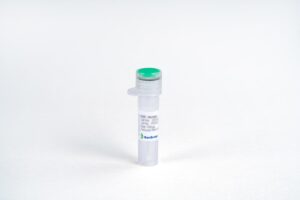
IL-1β, Human
$1,712.06 Add to cart View Product DetailsInterleukin-1 beta (rhIL-1β) is a proinflammatory cytokine produced in a variety of cells including monocytes, tissue macrophages, keratinocytes and other epithelial cells. Both IL-1 alpha and IL-1 beta binds to the same receptor and has similar if not identical biological properties. These cytokines have a broad range of activities including, stimulation of thymocyte proliferation, by inducing IL-2 release, B-cell maturation and proliferation, mitogenic FGF-like activity and the ability to stimulate the release of prostaglandin and collagenase from synovial cells. However, whereas IL-1 beta is a secreted cytokine, IL-1 alpha is predominantly a cell-associated cytokine.
-

IL-1β, Human
$94.88 Add to cart View Product DetailsInterleukin-1 beta (rhIL-1β) is a proinflammatory cytokine produced in a variety of cells including monocytes, tissue macrophages, keratinocytes and other epithelial cells. Both IL-1 alpha and IL-1 beta binds to the same receptor and has similar if not identical biological properties. These cytokines have a broad range of activities including, stimulation of thymocyte proliferation, by inducing IL-2 release, B-cell maturation and proliferation, mitogenic FGF-like activity and the ability to stimulate the release of prostaglandin and collagenase from synovial cells. However, whereas IL-1 beta is a secreted cytokine, IL-1 alpha is predominantly a cell-associated cytokine.
-

IL-1β, Human
$340.69 Add to cart View Product DetailsInterleukin-1 beta (rhIL-1β) is a proinflammatory cytokine produced in a variety of cells including monocytes, tissue macrophages, keratinocytes and other epithelial cells. Both IL-1 alpha and IL-1 beta binds to the same receptor and has similar if not identical biological properties. These cytokines have a broad range of activities including, stimulation of thymocyte proliferation, by inducing IL-2 release, B-cell maturation and proliferation, mitogenic FGF-like activity and the ability to stimulate the release of prostaglandin and collagenase from synovial cells. However, whereas IL-1 beta is a secreted cytokine, IL-1 alpha is predominantly a cell-associated cytokine.
-

IL-1β, Human(CHO-expressed)
$1,712.06 Add to cart View Product DetailsInterleukin 1 beta is a proinflammatory cytokine produced in a variety of cells including monocytes, tissue macrophages, keratinocytes and other epithelial cells. Both IL-1 alpha and IL-1 beta binds to the same receptor and has similar if not identical biological properties. These cytokines have a broad range of activities including, stimulation of thymocyte proliferation, by inducing IL-2 release, B-cell maturation and proliferation, mitogenic FGF-like activity and the ability to stimulate the release of prostaglandin and collagenase from synovial cells. However, whereas IL-1 beta is a secreted cytokine, IL-1 alpha is predominantly a cell-associated cytokine.
-

IL-1β, Human(CHO-expressed)
$94.88 Add to cart View Product DetailsInterleukin 1 beta is a proinflammatory cytokine produced in a variety of cells including monocytes, tissue macrophages, keratinocytes and other epithelial cells. Both IL-1 alpha and IL-1 beta binds to the same receptor and has similar if not identical biological properties. These cytokines have a broad range of activities including, stimulation of thymocyte proliferation, by inducing IL-2 release, B-cell maturation and proliferation, mitogenic FGF-like activity and the ability to stimulate the release of prostaglandin and collagenase from synovial cells. However, whereas IL-1 beta is a secreted cytokine, IL-1 alpha is predominantly a cell-associated cytokine.
-

IL-1β, Human(CHO-expressed)
$194.06 Add to cart View Product DetailsInterleukin 1 beta is a proinflammatory cytokine produced in a variety of cells including monocytes, tissue macrophages, keratinocytes and other epithelial cells. Both IL-1 alpha and IL-1 beta binds to the same receptor and has similar if not identical biological properties. These cytokines have a broad range of activities including, stimulation of thymocyte proliferation, by inducing IL-2 release, B-cell maturation and proliferation, mitogenic FGF-like activity and the ability to stimulate the release of prostaglandin and collagenase from synovial cells. However, whereas IL-1 beta is a secreted cytokine, IL-1 alpha is predominantly a cell-associated cytokine.
-

IL-1β, Mouse
$1,712.06 Add to cart View Product DetailsInterleukin-1 Beta (IL-1β) is a proinflammatory cytokine produced in a variety of cells including monocytes, tissue macrophages, keratinocytes and other epithelial cells. Both IL-1 alpha and IL-1 beta binds to the same receptor and has similar if not identical biological properties. These cytokines have a broad range of activities including, stimulation of thymocyte proliferation, by inducing IL-2 release, B-cell maturation and proliferation, mitogenic FGF-like activity and the ability to stimulate the release of prostaglandin and collagenase from synovial cells. However, whereas IL-1 beta is a secreted cytokine, IL-1 alpha is predominantly a cell-associated cytokine.
-

IL-1β, Mouse
$94.88 Add to cart View Product DetailsInterleukin-1 Beta (IL-1β) is a proinflammatory cytokine produced in a variety of cells including monocytes, tissue macrophages, keratinocytes and other epithelial cells. Both IL-1 alpha and IL-1 beta binds to the same receptor and has similar if not identical biological properties. These cytokines have a broad range of activities including, stimulation of thymocyte proliferation, by inducing IL-2 release, B-cell maturation and proliferation, mitogenic FGF-like activity and the ability to stimulate the release of prostaglandin and collagenase from synovial cells. However, whereas IL-1 beta is a secreted cytokine, IL-1 alpha is predominantly a cell-associated cytokine.
-

IL-1β, Mouse
$340.69 Add to cart View Product DetailsInterleukin-1 Beta (IL-1β) is a proinflammatory cytokine produced in a variety of cells including monocytes, tissue macrophages, keratinocytes and other epithelial cells. Both IL-1 alpha and IL-1 beta binds to the same receptor and has similar if not identical biological properties. These cytokines have a broad range of activities including, stimulation of thymocyte proliferation, by inducing IL-2 release, B-cell maturation and proliferation, mitogenic FGF-like activity and the ability to stimulate the release of prostaglandin and collagenase from synovial cells. However, whereas IL-1 beta is a secreted cytokine, IL-1 alpha is predominantly a cell-associated cytokine.
-

IL-1β, Mouse(CHO-expressed)
$1,651.69 Add to cart View Product DetailsInterleukin-1 (IL-1) is a family of cytokines that play a central role in the regulation of immune and inflammatory responses to infections or sterile insults. IL-1α and IL-1β are the first two members discovered in this family, which are the products of distinct genes recognizing the same cell surface receptors. IL-1α and IL-1β are structurally related polypeptides that show approximately 25% homology at the amino acid level. Both proteins are produced by a wide variety of cells in response to stimuli such as those produced by inflammatory agents, infections, or microbial endotoxins. The proteins are synthesized as 31 kDa precursors that are subsequently cleaved into proteins with molecular weights of approximately 17.5 kDa. The specific protease responsible for the processing of IL-1β is interleukin 1β-converting enzyme (ICE)/caspase-1. Mature human and mouse IL-1β share approximately 75% amino acid sequence identity where human IL-1β has been found to be active on murine cell lines.
-

IL-1β, Mouse(CHO-expressed)
$76.76 Add to cart View Product DetailsInterleukin-1 (IL-1) is a family of cytokines that play a central role in the regulation of immune and inflammatory responses to infections or sterile insults. IL-1α and IL-1β are the first two members discovered in this family, which are the products of distinct genes recognizing the same cell surface receptors. IL-1α and IL-1β are structurally related polypeptides that show approximately 25% homology at the amino acid level. Both proteins are produced by a wide variety of cells in response to stimuli such as those produced by inflammatory agents, infections, or microbial endotoxins. The proteins are synthesized as 31 kDa precursors that are subsequently cleaved into proteins with molecular weights of approximately 17.5 kDa. The specific protease responsible for the processing of IL-1β is interleukin 1β-converting enzyme (ICE)/caspase-1. Mature human and mouse IL-1β share approximately 75% amino acid sequence identity where human IL-1β has been found to be active on murine cell lines.
-

IL-1β, Mouse(CHO-expressed)
$245.81 Add to cart View Product DetailsInterleukin-1 (IL-1) is a family of cytokines that play a central role in the regulation of immune and inflammatory responses to infections or sterile insults. IL-1α and IL-1β are the first two members discovered in this family, which are the products of distinct genes recognizing the same cell surface receptors. IL-1α and IL-1β are structurally related polypeptides that show approximately 25% homology at the amino acid level. Both proteins are produced by a wide variety of cells in response to stimuli such as those produced by inflammatory agents, infections, or microbial endotoxins. The proteins are synthesized as 31 kDa precursors that are subsequently cleaved into proteins with molecular weights of approximately 17.5 kDa. The specific protease responsible for the processing of IL-1β is interleukin 1β-converting enzyme (ICE)/caspase-1. Mature human and mouse IL-1β share approximately 75% amino acid sequence identity where human IL-1β has been found to be active on murine cell lines.
-
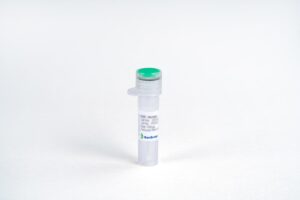
IL-1β, Rat
$2,018.25 Add to cart View Product DetailsInterleukin-1 Beta (IL-1 Beta) is a proinflammatory cytokine produced in a variety of cells including monocytes, tissue macrophages, keratinocytes and other epithelial cells. Both IL-1 alpha and IL-1 beta bind to the same receptor and have similar if not identical biological properties. These cytokines have a broad range of activities including, stimulation of thymocyte proliferation, by inducing IL-2 release, B-cell maturation and proliferation, mitogenic FGF-like activity and the ability to stimulate the release of prostaglandin and collagenase from synovial cells. However, whereas IL-1 beta is a secreted cytokine, IL-1 alpha is predominantly a cell-associated cytokine.
-

IL-1β, Rat
$86.25 Add to cart View Product DetailsInterleukin-1 Beta (IL-1 Beta) is a proinflammatory cytokine produced in a variety of cells including monocytes, tissue macrophages, keratinocytes and other epithelial cells. Both IL-1 alpha and IL-1 beta bind to the same receptor and have similar if not identical biological properties. These cytokines have a broad range of activities including, stimulation of thymocyte proliferation, by inducing IL-2 release, B-cell maturation and proliferation, mitogenic FGF-like activity and the ability to stimulate the release of prostaglandin and collagenase from synovial cells. However, whereas IL-1 beta is a secreted cytokine, IL-1 alpha is predominantly a cell-associated cytokine.
-

IL-1β, Rat
$271.69 Add to cart View Product DetailsInterleukin-1 Beta (IL-1 Beta) is a proinflammatory cytokine produced in a variety of cells including monocytes, tissue macrophages, keratinocytes and other epithelial cells. Both IL-1 alpha and IL-1 beta bind to the same receptor and have similar if not identical biological properties. These cytokines have a broad range of activities including, stimulation of thymocyte proliferation, by inducing IL-2 release, B-cell maturation and proliferation, mitogenic FGF-like activity and the ability to stimulate the release of prostaglandin and collagenase from synovial cells. However, whereas IL-1 beta is a secreted cytokine, IL-1 alpha is predominantly a cell-associated cytokine.
-

IL-1β, Rat
$3,540.56 Add to cart View Product DetailsInterleukin-1beta (IL-1β) is a non-secreted proinflammatory cytokine produced mainly by activated macrophages, as well as neutrophils, epithelial cells, and endothelial cells. It possesses metabolic, physiological, haematopoietic activities, and plays one of the central roles in the regulation of the immune responses. Both IL-1αand IL-1β binds to the same receptor and have similar but not identical biological properties. The mature rat IL1β shares 90 % a.a. sequence identity with cotton rat and mouse and 65 % to 77 % with canine, human,and rhesus IL1β.
-

IL-1β, Rat
$159.56 Add to cart View Product DetailsInterleukin-1beta (IL-1β) is a non-secreted proinflammatory cytokine produced mainly by activated macrophages, as well as neutrophils, epithelial cells, and endothelial cells. It possesses metabolic, physiological, haematopoietic activities, and plays one of the central roles in the regulation of the immune responses. Both IL-1αand IL-1β binds to the same receptor and have similar but not identical biological properties. The mature rat IL1β shares 90 % a.a. sequence identity with cotton rat and mouse and 65 % to 77 % with canine, human,and rhesus IL1β.
-

IL-1β, Rat
$521.81 Add to cart View Product DetailsInterleukin-1beta (IL-1β) is a non-secreted proinflammatory cytokine produced mainly by activated macrophages, as well as neutrophils, epithelial cells, and endothelial cells. It possesses metabolic, physiological, haematopoietic activities, and plays one of the central roles in the regulation of the immune responses. Both IL-1αand IL-1β binds to the same receptor and have similar but not identical biological properties. The mature rat IL1β shares 90 % a.a. sequence identity with cotton rat and mouse and 65 % to 77 % with canine, human,and rhesus IL1β.
